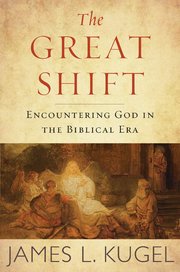In Advanced Initiation Training, we note that with his Plymouth Brethren upbringing, Aleister Crowley, the editor and reviser of OTO’s initiation rituals was, in his own words, “deprived of all English literature but the Bible during the whole of his youth.” In Liber 888 Crowley claimed “an intimate knowledge of the Bible so deeply rooted that it seems hardly unfair to say that it formed the whole foundation of my mind.” [if ya wanna learn more, register for the next AIT which is scheduled for Vegas this coming May!] So one might consider that the book in question could be of some interest to members of the OTO, A.’.A.’. and free-range Thelemites. Oh yeah, and there’s that whole Qabalah jawn that was generated by extensive contemplation of multiple facets of the Torah (among other things).
The New York Times Book Review ran a cool piece on two books, Richard Friedman’s The Exodus and James Kugel’s The Great Shift: Encountering God In Biblical Times. Lotta good food for thought here, one especially intriguing bit (to me at least) being:
“Kugel points out that when God speaks to biblical characters, even for the first time, they are ‘surprised, but not exactly bowled over.’ Apparently the experience is not radically different from a human encounter. (The prophet Samuel thrice mistakes God’s voice for that of his priestly mentor.) Kugel draws on Charles Taylor’s notion that the premodern self was ‘porous’ — or as Kugel puts it, ‘semipermeable.’ People did not experience themselves as fixed, bounded individuals, but as continuous with the natural world. When God appeared there was a ‘fog of divine beings,’ a moment that was different from ordinary reality, but not a radical break with it. While we cannot know the experience of an earlier generation, Kugel draws on a wide range of both anthropological and neurological data, along with ancient Near Eastern texts reflecting a similar sense of self. Rather than nature being ‘out there,’ everything interpenetrated, and hearing voices was not uncommon in a world enchanted and inhabited by spirit.
“The heart of the book contains evidence from the biblical text that not only were human beings more permeable, the Deity was different too: far less abstract and distant than later conceptions. God was periodically visible, local, choosing to be accessible to select individuals at times.”
…which you might consider could be restated as Divinity being experienced as as interior as well as exterior presence. Or mebbe not. Read the whole review and perhaps the books and decide fr yrself!


